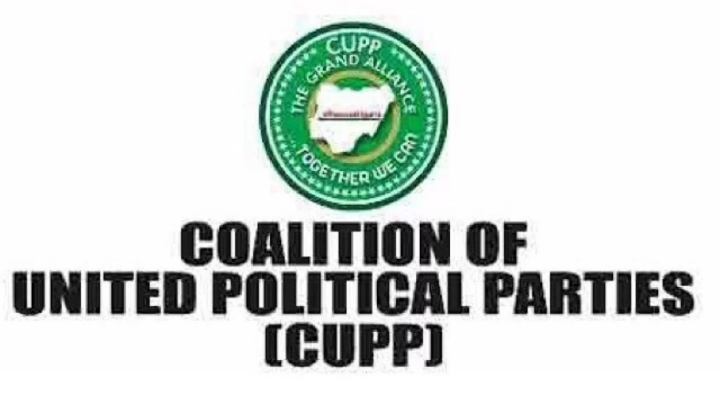The Coalition of United Political Parties (CUPP) has voiced concerns over the dwindling enthusiasm for Nigeria’s Independence Day celebrations, once a symbol of national pride and unity.
The coalition attributed the lacklustre mood to the harsh economic realities many Nigerians are currently facing.
In a statement signed by its national secretary, Peter Ameh, the CUPP noted that this year’s celebration marks another moment overshadowed by the struggles for survival.

The coalition highlighted that many citizens are now indifferent to the day, which once inspired patriotic fervour.
According to the CUPP, “The 64th anniversary serves as a stark reminder of unfulfilled promises. It’s time for introspection, collective responsibility, and decisive action.
The nation yearns for transformative leadership, effective governance, and a renewed commitment to progress.”
The statement pointed to rising hunger and poverty across the country, stating that basic food items like rice, garri, and groundnut oil, which once formed the foundation of Nigerian households, have now become luxuries.
For example, a bag of rice, once affordable, now puts pressure on family budgets, while the price of garri has made it a rare treat for many.
Groundnut oil, another essential in Nigerian cuisine, has reportedly surged to ₦2,500 per bottle, worsening the economic strain on ordinary citizens.
“The economic downturn has eroded the sense of national pride,” the statement continued. “Citizens are preoccupied with survival, leaving little room for patriotic sentiment.”
The coalition observed that the usual Independence Day festivities, which once evoked hope and a sense of progress, now only serve as reminders of unmet expectations.
The CUPP criticised successive governments for failing to deliver on their promises, leading to a nation mired in poverty, insecurity, and stagnation.
It pointed out various factors contributing to the country’s economic woes, including:
– Leadership Incompetence: The coalition blamed a lack of visionary leadership, with leaders prioritising personal interests over national progress.
– Corruption: Endemic corruption has siphoned resources, undermining development efforts.
– Poor Governance: Ineffective institutions and policies have hindered economic growth and social development.
– Rising Inflation: Soaring prices have rendered basic necessities unaffordable for many.
– Unemployment: Millions of Nigerians are without stable income, deepening the levels of poverty.
– Currency Fluctuations: The Naira’s devaluation has exacerbated price hikes across the board.
The coalition noted that these challenges have led to widespread hardship, with over 80 million Nigerians living below the poverty line.
It also highlighted the issue of malnutrition, the increasing vulnerability of citizens to crime due to desperation, and the ongoing threat of insecurity from Boko Haram, banditry, and kidnapping.
Infrastructure decay, including poor roads, inadequate healthcare, and underfunded education, were also mentioned, alongside the issue of brain drain as many talented individuals seek opportunities abroad.
Summing up the nation’s current situation, the coalition stated, “’Hungry man, angry man’ aptly describes Nigeria’s situation. Citizens are frustrated, disillusioned, and increasingly desperate.”
Support InfoStride News' Credible Journalism: Only credible journalism can guarantee a fair, accountable and transparent society, including democracy and government. It involves a lot of efforts and money. We need your support. Click here to Donate
